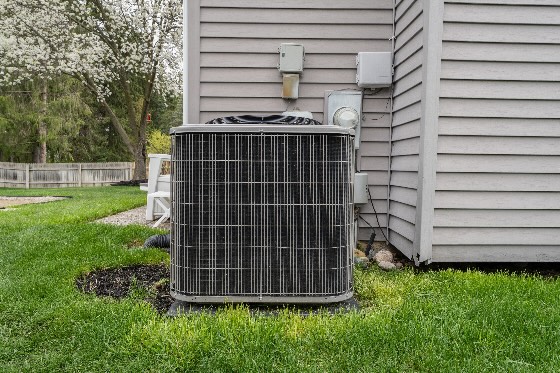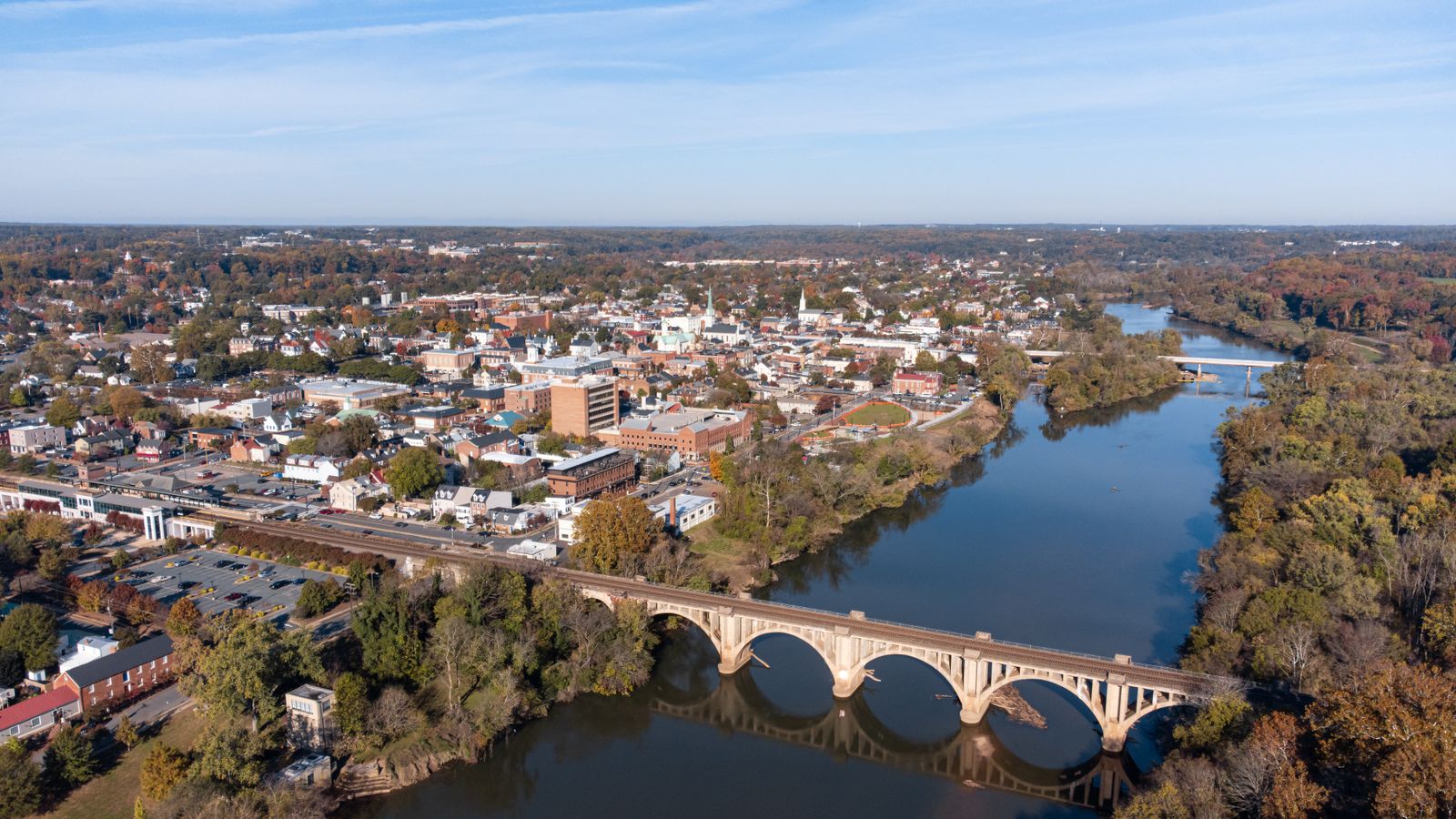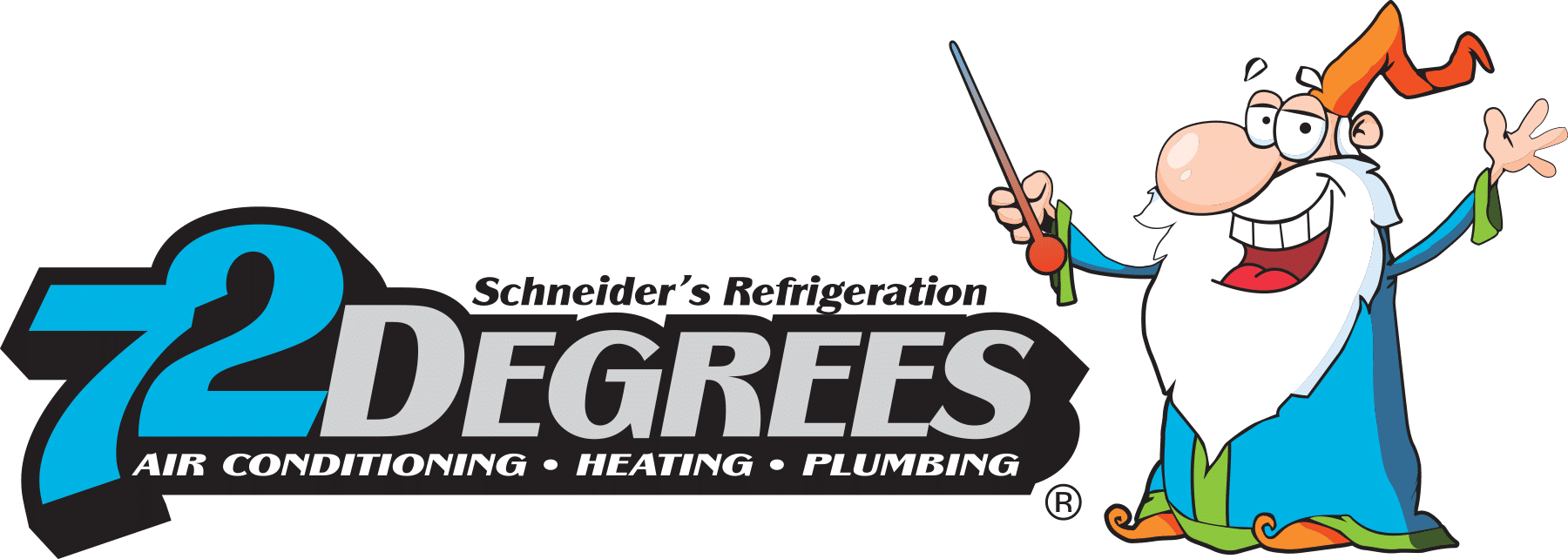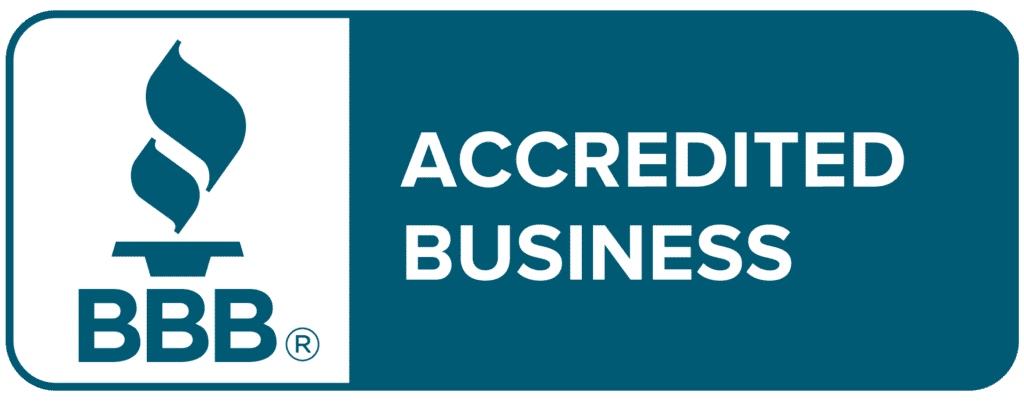Changes are coming that could significantly impact your home’s comfort and your wallet. With new refrigerant regulations set to increase air conditioning prices in 2025, Texas homeowners may soon face soaring costs to keep cool. Nobody wants to be surprised by hefty expenses or left sweltering in the summer heat. Now is the ideal time to replace your AC unit before these price hikes take effect.
At 72 Degrees Texas, we understand how crucial it is to maintain a comfortable home without overspending. We’re here to help you navigate these upcoming changes and find the most cost-effective solutions for your cooling needs. Whether you’re in Fredericksburg or the Texas Hill Country, trust our team of HVAC experts to guide you through this transition and ensure your home stays cool and efficient.
Understanding the Upcoming Refrigerant Changes
The refrigerant phase-out is a gradual process that targets two main types of refrigerants: R-22 and R-410A. R-22, also known as Freon, has been used in AC systems for decades but was found to contribute to ozone depletion. As a result, it was phased out of production in 2020, and servicing systems that use R-22 has become increasingly expensive.
R-410A, the current standard refrigerant, is now also facing a phase-out due to its high global warming potential (GWP). The GWP measures a substance’s ability to trap heat in the atmosphere, contributing to climate change. To reduce the environmental impact of air conditioning, new refrigerants with lower GWP, such as R-32 and R-454B, will replace R-410A in the coming years.
These changes are driven by international agreements, such as the Montreal Protocol and the Kigali Amendment, which aim to reduce the production and consumption of substances that harm the ozone layer and contribute to global warming. By phasing out harmful refrigerants and transitioning to more environmentally friendly alternatives, we can significantly reduce the carbon footprint of our homes and help protect the planet for future generations.
How the 2025 Regulations Affect Your AC System
As the 2025 regulations come into effect, homeowners with older AC units that use R-410A refrigerant may face some challenges. While these systems will not become illegal overnight, the phase-out of R-410A will have a significant impact on the cost and availability of servicing and repairs.
- Impact on servicing and repair costs for older AC units: As manufacturers stop producing R-410A, the supply of this refrigerant will become increasingly scarce. This scarcity will drive up the cost of servicing and repairing AC systems that still rely on R-410A. Homeowners with older units may find themselves paying a premium for refrigerant recharges and leak repairs, as technicians will have to source the dwindling supply of R-410A.
- The legality and feasibility of maintaining systems with phased-out refrigerants: While it will remain legal to operate AC systems that use R-410A after the 2025 regulations take effect, maintaining these systems may become increasingly difficult and expensive. As the supply of R-410A diminishes, some HVAC professionals may choose not to work with this refrigerant, limiting your options for servicing and repairs. Additionally, as the cost of R-410A rises, it may become more economical to replace an older system with a newer, more efficient model that uses an approved refrigerant.
Why AC Prices Can Increase Significantly
As the 2025 regulations loom on the horizon, homeowners should brace themselves for a significant increase in the cost of air conditioning systems. Industry experts predict that the price of new AC units could rise by 20-30% in the coming years, driven by a combination of regulatory changes and market forces.
- Anticipated 20-30% price hikes due to regulatory changes: The transition to new, more environmentally friendly refrigerants will require manufacturers to redesign their AC systems. This process involves significant research and development costs, as well as investments in new production equipment and training for technicians. These expenses will ultimately be passed on to consumers in the form of higher prices for new AC units. Additionally, the increased complexity of the new systems may lead to higher installation costs, as technicians will require additional training and specialized tools to work with the new refrigerants.
- Supply shortages and increased demand for compliant systems: As the 2025 deadline approaches, demand for AC systems that comply with the new regulations is expected to surge. Homeowners looking to upgrade their aging units before the phase-out takes effect will be competing for a limited supply of compliant systems. This increased demand, coupled with potential supply chain disruptions as manufacturers transition to new refrigerants, could lead to shortages and further price increases. As a result, homeowners who wait until the last minute to replace their AC systems may find themselves paying a premium for a compliant unit.
Signs It’s Time to Replace Your AC Unit
As a homeowner, it’s crucial to know when it’s time to replace your air conditioning system, especially in light of the upcoming refrigerant changes. While regular maintenance can extend the life of your AC unit, there comes a point when replacing it becomes the most cost-effective and efficient option. Here are some key signs that indicate it might be time to upgrade your cooling system:
- Age of your system: Is it over 8-10 years old? The average lifespan of an air conditioning system is between 10 and 15 years, depending on factors such as maintenance, usage, and climate. If your AC unit is approaching or exceeding this age range, it may be time to consider a replacement. Older systems are more likely to use phased-out refrigerants, such as R-22 or R-410A, which will become increasingly expensive and difficult to obtain as the 2025 regulations take effect. Upgrading to a newer, more efficient system that uses an approved refrigerant can help you avoid the rising costs associated with servicing an aging unit.
- Frequency and cost of recent repairs: If you find yourself calling for AC repairs more often than usual, it could be a sign that your system is nearing the end of its life. As your unit ages, wear and tear can lead to more frequent breakdowns and malfunctions. These repairs can quickly add up, and in some cases, the cumulative cost of repairs may exceed the price of a new system. If you’ve spent a significant amount on repairs in the past year or two, it may be more economical to invest in a new, more reliable AC unit.
- Inefficiency and rising energy bills: Over time, your air conditioning system may lose efficiency due to age, wear, and tear. This can result in longer cooling cycles, uneven temperature distribution, and higher energy consumption. If you’ve noticed a steady increase in your energy bills without a corresponding increase in usage, it could be a sign that your AC unit is struggling to keep up with demand. Upgrading to a newer, more energy-efficient system can help you save money on your monthly utility bills while ensuring more consistent and effective cooling throughout your home.
If you’ve noticed any of these signs, it’s essential to consult with a trusted HVAC professional to assess your system and discuss your options. They can help you determine whether a repair or replacement is the best course of action based on your specific needs and budget. By proactively addressing these issues and considering an upgrade, you can ensure that your home remains comfortable and efficient, even as the industry undergoes significant changes in the coming years.
Benefits of Upgrading to a New AC System Now
As a homeowner, you may be weighing the pros and cons of upgrading your air conditioning system in light of the upcoming refrigerant changes. While the initial investment in a new AC unit may seem daunting, there are several compelling reasons to consider making the switch sooner rather than later. By upgrading to a new, compliant system now, you can take advantage of numerous benefits that will keep your home comfortable, efficient, and environmentally friendly for years to come.
- Access to the latest energy-efficient technology: One of the most significant advantages of upgrading to a new AC system is the opportunity to leverage the latest advancements in energy-efficient technology. Newer air conditioning units are designed to provide optimal cooling performance while consuming less energy, thanks to features such as variable-speed compressors, smart thermostats, and improved heat exchange materials. These innovations can help you maintain a comfortable indoor environment while reducing your monthly energy bills, ultimately saving you money in the long run. Additionally, many newer systems boast higher SEER (Seasonal Energy Efficiency Ratio) ratings, indicating their superior energy efficiency compared to older models.
- Availability of new systems with warranties: When you invest in a new AC system, you’ll have peace of mind knowing that your unit is covered by a manufacturer’s warranty. These warranties typically cover parts and labor for a specified period, protecting you against unexpected repair costs in the event of a malfunction or defect. As the 2025 regulations take effect and the demand for compliant systems increases, the availability of new units with comprehensive warranties may become limited. By upgrading now, you can secure a system with a robust warranty, ensuring that your investment is protected for years to come. Moreover, many HVAC professionals offer extended warranties or maintenance plans that can further safeguard your new system and keep it running at peak efficiency.
- Avoiding future repair costs and compliance issues: As the phase-out of R-410A progresses, the cost and availability of this refrigerant will become increasingly problematic for homeowners with older AC systems. By upgrading to a new, compliant system now, you can avoid the rising costs associated with repairing and maintaining a unit that relies on a phased-out refrigerant. In addition to the financial benefits, upgrading now ensures that your home’s cooling system is compliant with the latest regulations and environmental standards. This can provide peace of mind, knowing that your AC unit is not only efficient and cost-effective but also environmentally responsible. Furthermore, a new, compliant system can be an attractive selling point if you decide to put your home on the market in the future, as savvy buyers will recognize the value of an up-to-date, energy-efficient cooling system.
Investing in a new air conditioning system may require careful consideration and planning, but the benefits of upgrading now are clear. By taking advantage of the latest energy-efficient technology, securing a system with a comprehensive warranty, and avoiding future repair costs and compliance issues, you can ensure that your home remains comfortable, efficient, and environmentally friendly for years to come. If you’re unsure about the best course of action for your specific situation, consult with a trusted HVAC professional who can assess your current system, discuss your options, and help you make an informed decision based on your unique needs and budget.
The Risks of Waiting Until After 2025
As a homeowner, it’s understandable to want to maximize the lifespan of your current air conditioning system. However, waiting until after the 2025 regulations take effect to replace your AC unit can come with significant risks and drawbacks. By delaying the inevitable, you may find yourself facing exorbitant costs, limited options, and decreased comfort in your home. Let’s explore the potential consequences of waiting too long to upgrade your cooling system.
- Exorbitant costs for outdated refrigerants: One of the most significant risks of waiting until after 2025 to replace your AC unit is the likelihood of paying excessively high prices for outdated refrigerants. As the phase-out of R-410A progresses, the supply of this refrigerant will become increasingly scarce, driving up the cost of recharging and servicing older systems. Homeowners who continue to rely on units that use R-410A may find themselves paying a premium for refrigerant that is no longer in production, making repairs and maintenance far more expensive than they would be with a newer, compliant system. In some cases, the cost of a single refrigerant recharge could exceed the price of a new, energy-efficient AC unit, making the decision to wait a costly one in the long run.
- Difficulty finding replacement parts for older systems: Another risk of waiting too long to replace your air conditioning system is the potential difficulty in sourcing replacement parts for older units. As manufacturers shift their focus to producing components for newer, compliant systems, the availability of parts for older models that use phased-out refrigerants may become limited. This can make repairs more challenging and time-consuming, as HVAC technicians may struggle to find the necessary components to fix your aging system. In some cases, replacement parts may no longer be available, forcing homeowners to replace their entire AC unit unexpectedly. By upgrading to a new, compliant system before the 2025 regulations take full effect, you can ensure that your unit is compatible with readily available parts, minimizing the risk of extended downtime and costly repairs.
- Limited availability of new units due to high demand: As the 2025 deadline approaches, the demand for new, compliant air conditioning systems is expected to surge. Homeowners who wait until the last minute to replace their aging units may find themselves facing limited availability and longer wait times for installation. As more people rush to upgrade their systems before the phase-out of R-410A is complete, HVAC manufacturers and contractors may struggle to keep up with the increased demand. This can result in extended lead times for new units, leaving homeowners without a functioning air conditioning system during the hottest months of the year. Additionally, the heightened demand may lead to price increases for new systems, as manufacturers and contractors adjust their pricing to reflect the market conditions. By acting now and replacing your AC unit before the rush, you can ensure that you have access to a wide selection of new, compliant systems at competitive prices, avoiding the potential for extended discomfort and financial strain.
The decision to replace your air conditioning system is a significant one, but waiting until after the 2025 regulations take effect can come with serious risks and drawbacks. By understanding the potential consequences of delaying an upgrade, such as exorbitant costs for outdated refrigerants, difficulty finding replacement parts, and limited availability of new units, you can make an informed decision that prioritizes your comfort, budget, and long-term peace of mind. If you’re unsure about the best course of action for your specific situation, consult with a trusted HVAC professional who can assess your current system, discuss your options, and help you navigate the upcoming changes in the industry with confidence.
How 72 Degrees Texas Can Help You Stay Ahead
As a homeowner navigating the upcoming changes in the air conditioning industry, it’s essential to have a trusted partner by your side. Our team of experienced HVAC professionals is here to guide you through the process of upgrading your cooling system, ensuring that your home remains comfortable, efficient, and compliant with the latest regulations. We understand that every home is unique, which is why we offer personalized solutions tailored to your specific needs and budget. Here’s how we can help you stay ahead of the curve:
- Consultation to determine your current refrigerant type: The first step in preparing for the upcoming changes is to understand your current system’s refrigerant type. Our team will provide a convenient consultation to assess your AC unit and determine whether it uses R-410A or another refrigerant. This information is crucial in planning for the future and making informed decisions about your home’s cooling needs. During the consultation, our experts will also evaluate your system’s overall health, identifying any potential issues that may need to be addressed to ensure optimal performance and efficiency.
- Expert recommendations tailored to your home’s needs: Armed with the knowledge of your current system’s refrigerant type and overall condition, our team will provide expert recommendations tailored to your home’s specific needs. We will take into account factors such as the size of your home, your cooling preferences, and your budget to help you select the best replacement option for your situation. Our goal is to ensure that you have access to the most energy-efficient, cost-effective, and environmentally friendly cooling solutions available, while also prioritizing your comfort and satisfaction.
- Professional installation of new, compliant AC systems: Once you’ve selected the perfect replacement system for your home, our team of certified HVAC technicians will handle the installation process with the utmost care and expertise. We understand that installing a new air conditioning system can be a significant investment, which is why we strive to make the process as seamless and stress-free as possible. Our technicians are trained to work with the latest, compliant refrigerants and equipment, ensuring that your new system is installed correctly and in compliance with all relevant regulations. We will also take the time to educate you on the proper use and maintenance of your new system, helping you maximize its efficiency and longevity.
- Peace of mind with guarantees and reliable service: When you choose us as your HVAC partner, you can rest assured that your investment is protected. We offer comprehensive guarantees on both parts and labor for all new AC system installations, giving you peace of mind and protection against unexpected repair costs. In addition to our installation services, we also provide ongoing maintenance and support to keep your system running at peak performance. Our team is available 24/7 to address any concerns or issues that may arise, ensuring that you always have a reliable source of support when you need it most.
As the air conditioning industry evolves to meet new environmental standards, it’s crucial to have a knowledgeable and experienced partner by your side. Our team is committed to helping you navigate these changes with confidence, providing personalized solutions that prioritize your comfort, efficiency, and long-term satisfaction. Trust us to guide you through the process of upgrading your cooling system, and experience the peace of mind that comes with knowing your home is prepared for the future.
We are the Wizards of Comfort.
As the 2025 refrigerant regulations loom on the horizon, it’s crucial to act now to ensure your home’s comfort and avoid the impending price hikes. Our team of experienced HVAC professionals is here to guide you through the process of upgrading your cooling system, providing personalized recommendations tailored to your specific needs and budget. Don’t wait until the last minute to replace your aging AC unit—contact us today to schedule a free consultation and take the first step towards a more efficient, environmentally friendly, and cost-effective home cooling solution. With our 24/7 availability and unwavering commitment to customer satisfaction, you can trust us to be your partner in navigating the upcoming changes in the air conditioning industry. Let us help you stay ahead of the curve and secure your home’s comfort for years to come.









